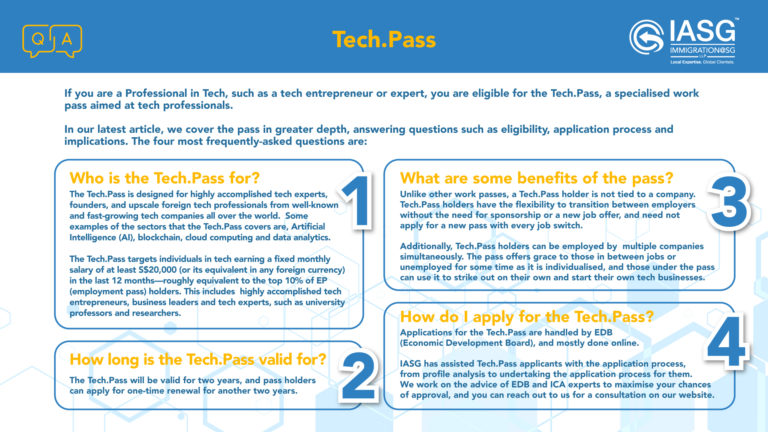Despite Singapore’s reputation for having one of the world’s most robust regulatory frameworks and efficient legal systems, there remain individuals and companies who attempt to circumvent the law for personal or financial gain. Such acts not only undermine the integrity of Singapore’s manpower policies but also compromise the fairness of opportunities available to genuine workers and employers. In particular, cases involving false declarations in work pass applications continue to surface, highlighting the risks that some are willing to take in order to secure unlawful advantages.
Below are several recent cases where offenders were prosecuted for making false statements in work pass applications, underscoring the authorities’ firm stance and the serious consequences of such offences.
Misuse of Training Employment Pass (TEP)
Employers have been misusing the Training Employment Pass (TEP) to bypass the strict Work Pass eligibility for Work Permit, S Pass, and Employment Pass (EP) and hire foreign employees without the constraints of foreign worker quota, levy, and increasing minimum salary requirements. The TEP is meant for foreign students or trainees to undergo short-term professional training in Singapore for up to 3 months, earning a minimum salary of $3000 a month. The job for student trainees needs to be related to their studies and they must be studying in a recognised institution to be eligible for the TEP.
The TEP, a non-renewable pass meant to train foreign trainees for the purpose of applying the skills back in their own countries and is meant for skilled roles in industries such as legal and medical. However, errant employers use the TEP, on the pretext of training, to fill up vacancies on low paying or unattractive jobs that locals avoid. While some are unaware, there are employers that knowingly work with employment agencies for this purpose.
Detriment to Workers
When work pass applications are obtained through false declarations, workers under such arrangements face significant risks and vulnerabilities. TEP holders linked to errant employers may be easily exploited, as their legal status in Singapore is tied to employers who have already demonstrated a disregard for the law. This can manifest in several ways:
- Job Scope Exploitation: Workers may be made to perform duties outside the scope stated in their work passes, including being assigned to unrelated industries or unsafe work environments.
- Salary and Benefits Abuse: Payments may be delayed, withheld, or fall far below the promised amount, leaving workers financially insecure and unable to support themselves or their families.
- Neglect of Worker Welfare: Employers who circumvent regulations are less likely to provide adequate housing, healthcare, or basic support, further exposing workers to hardship.
More critically, false declarations can serve as a cover for criminal activities, such as human trafficking, illegal labour syndicates, or scam operations. In such cases, workers are not only deprived of their rights but may also be placed in situations that put them at personal, financial, or even legal risk. These practices erode trust in Singapore’s employment framework and place genuine foreign workers at a severe disadvantage.
False Declaration in Work Permit Application
Filipino national Turla Teresa Espeleta (50) was sentenced to 25 weeks’ jail for making false work permit declarations and working without a valid pass. Her romantic partner, Tungol Renato Reyes (52) was sentenced to 19 weeks’ jail for conspiring with her by stating that Teresa was his domestic worker in the Work Permit application. In truth, Teresa worked illegally as a waitress and cleaner, while receiving allowances from Renato. By law, migrant domestic workers (MDWs) may only perform household duties for their official employer.
False Declaration in Employment Pass Application
Chu Sau Ben, 59, former CEO of Libra Group Limited, was sentenced to five weeks’ jail for making false declarations in Employment Pass applications for two foreigners who invested at least $3 million collectively in Chu’s failing business. Neither intended to work in Singapore and the Employment Passes were used only to legalise their stay.
Risks of False Declarations in Work Pass Applications
Submitting false information in work pass applications is a serious offence under the Employment of Foreign Manpower Act (EFMA). Offenders who make such false declarations can face heavy penalties, including fines of up to $20,000, imprisonment of up to two years, or both. In addition, those found guilty will be permanently barred from working in Singapore, and employers involved will have their work pass privileges suspended. Beyond the legal consequences, false declarations undermine trust in the work pass system, compromise workplace integrity, and may also expose offenders to further investigations for related offences such as furnishing false information to public servants.







